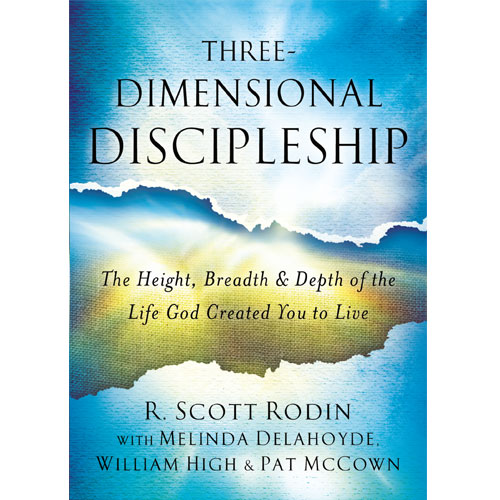The Critical Missing Ingredient in our Strategic Planning
How to build an “ebenezer” for your organization


Please take a moment and read this remarkable story from 1 Samuel.
So the men of Kiriath Jearim came and took up the ark of the Lord. They brought it to Abinadab’s house on the hill and consecrated Eleazar his son to guard the ark of the Lord. The ark remained at Kiriath Jearim a long time—twenty years in all. Then all the people of Israel turned back to the Lord. So Samuel said to all the Israelites, “If you are returning to the Lord with all your hearts, then rid yourselves of the foreign gods and the Ashtoreths and commit yourselves to the Lord and serve him only, and he will deliver you out of the hand of the Philistines.” So the Israelites put away their Baals and Ashtoreths, and served the Lord only. Then Samuel said, “Assemble all Israel at Mizpah, and I will intercede with the Lord for you.” When they had assembled at Mizpah, they drew water and poured it out before the Lord. On that day they fasted and there they confessed, “We have sinned against the Lord.” Now Samuel was serving as leader of Israel at Mizpah. When the Philistines heard that Israel had assembled at Mizpah, the rulers of the Philistines came up to attack them. When the Israelites heard of it, they were afraid because of the Philistines. They said to Samuel, “Do not stop crying out to the Lord our God for us, that he may rescue us from the hand of the Philistines.” Then Samuel took a suckling lamb and sacrificed it as a whole burnt offering to the Lord. He cried out to the Lord on Israel’s behalf, and the Lord answered him. While Samuel was sacrificing the burnt offering, the Philistines drew near to engage Israel in battle. But that day the Lord thundered with loud thunder against the Philistines and threw them into such a panic that they were routed before the Israelites. The men of Israel rushed out of Mizpah and pursued the Philistines, slaughtering them along the way to a point below Beth Kar. Then Samuel took a stone and set it up between Mizpah and Shen. He named it Ebenezer, saying, “Thus far the Lord has helped us.” (1 Samuel 7:1-12)
At the beginning of a new year, leaders are focused on the future. In strategic planning we are looking to the horizon and preparing for what could be. As leaders our gaze is almost always forward. That’s what we’ve been hired for, to take our organization or business or church forward. Bigger, better, more. It all requires a constant pressing unto the future.
I hope for you that question that you ask is, ‘what is God’s will for our future?’ I pray you are seeking to be lead by Him so that your work aligns with His will.
But how do you discern the will of God? Isn’t that the great question that hangs over all of us as leaders? How do we know where God wants us to go, how fast and by what means? What is the difference between human risk-taking and God-pleasing faith walking? How can our own, flawed envisioning of the future get overwhelmed by the guidance of the Holy Spirit? How do we make sure we are leading our people in God’s way?
I am becoming convinced that one part of the answer to these questions is a process we seldom if ever undertake in our planning. It is found in this story of Samuel. After a time of Israel’s turning back to God and experiencing a great victory by God’s power over the Philistines, Samuel takes a rock, names it Ebenezer and sets it before the people, proclaiming that the rock represented the faithfulness of God right up to the very moment. “Thus far God has helped us.”
It may have been tempting for Samuel to seize the occasion for a time of planning. He had momentum, confidence and energy on his side. What a great time to make a speech about the future and rally the nation on to the next conquest.
But he pauses and carries out this ritual of placing an Ebenezer stone in the presence of all of Israel. So what is an ‘Ebenzer?’
The word Ebenezer comes from Hebrew and is actually two words pronounced together usually transliterated as a proper name by dropping the definite article from the Hebrew word for help and putting it together with the Hebrew word for stone to create: Ebenezer. Thus defined, an Ebenezer is, literally, a Stone of Help.
What is remarkable about the site where Samuel erected the stone is that it was the very place where the Israelites had been defeated twice before by the Philistines and where the Ark of the Covenant had been lost. It was a site of previous losses, of sorrow and lament. Now, a resurgent and faithful Israel saw God’s hand move for them and the land was transformed into a memorial of God’s power and faithfulness, and of Israel’s return to Him.
So Samuel erects a Stone of Help as a reminder of God’s real, holy presence and divine aid. He did so in order that a place would be forever changed and a nation would never forget what God did there. I believe he also did it to ensure that the future of the nation would be built upon this stone. In other words, Samuel was saying, “The God who has helped us this far will be the rock upon which we will go forward, believing He will help us in the future. But we must not forget that it was only by His hand, at this place and in this way that we have been saved.”
Before going forward, Samuel commemorates the past and sets a stone in place for all to see, remember and honor what God had done.
I believe as steward leaders we must use the beginning of this year to erect just such Ebenezer stones for our organizations. A stone of help can be nearly anything that reminds us of God’s presence and mighty work in our midst. Look back to 2015. Where do you see God’s handprints on your organization? Re-live the miracles, remember the answered prayer, and recollect the moments of victory that were poignant reminders of His hand of blessing on your work.
Then assemble your people and recount them together. As you do, erect an Ebenezer that will be a constant reminder of all God has done to ‘help you thus far.’ Celebrate His goodness, worship His holiness and honor His work in your midst.
Then, as you turn your eyes to the future, I would encourage you to do three things.
- Search out what can be learned from God’s work in your past. How did God work? What was He teaching you? How did the events shape you as a leader and your organization? Discuss them and write them down.
- Lay what you have written alongside your plans for the future. Do your goals align with the lessons God is teaching you? Are there any places where your strategy might take you back to a place from which God rescued you? Are you in danger of repeating any of the mistakes of the past? As a team, re-work your goals to include all that God has taught you in ‘helping you thus far.’
- Be encouraged. It is likely that your Ebenezers will mark places of unexpected blessing and unmerited rescue. It was not only by the might of the Lord, but by His unconditional love that you are where you are today, as an organization and as a leader. Be ready to lead your people forward in the certainty that the same powerful and loving God will be waiting for you at every step. As He does, as moments of divine intervention and times of His unmistakable presence fill your year, pause for a moment and look back at your Ebenezer stones. It will remind you that the God who ‘helped you thus far’ will be the God who has “plans to prosper you and not to harm you, plans to give you hope and a future.” (Jeremiah 29:11)
Here I raise my Ebenezer;
Here by Thy great help I’ve come;
And I hope, by Thy good pleasure,
Safely to arrive at home.
(Come Thou Font of Every Blessing, Robert Robinson)





